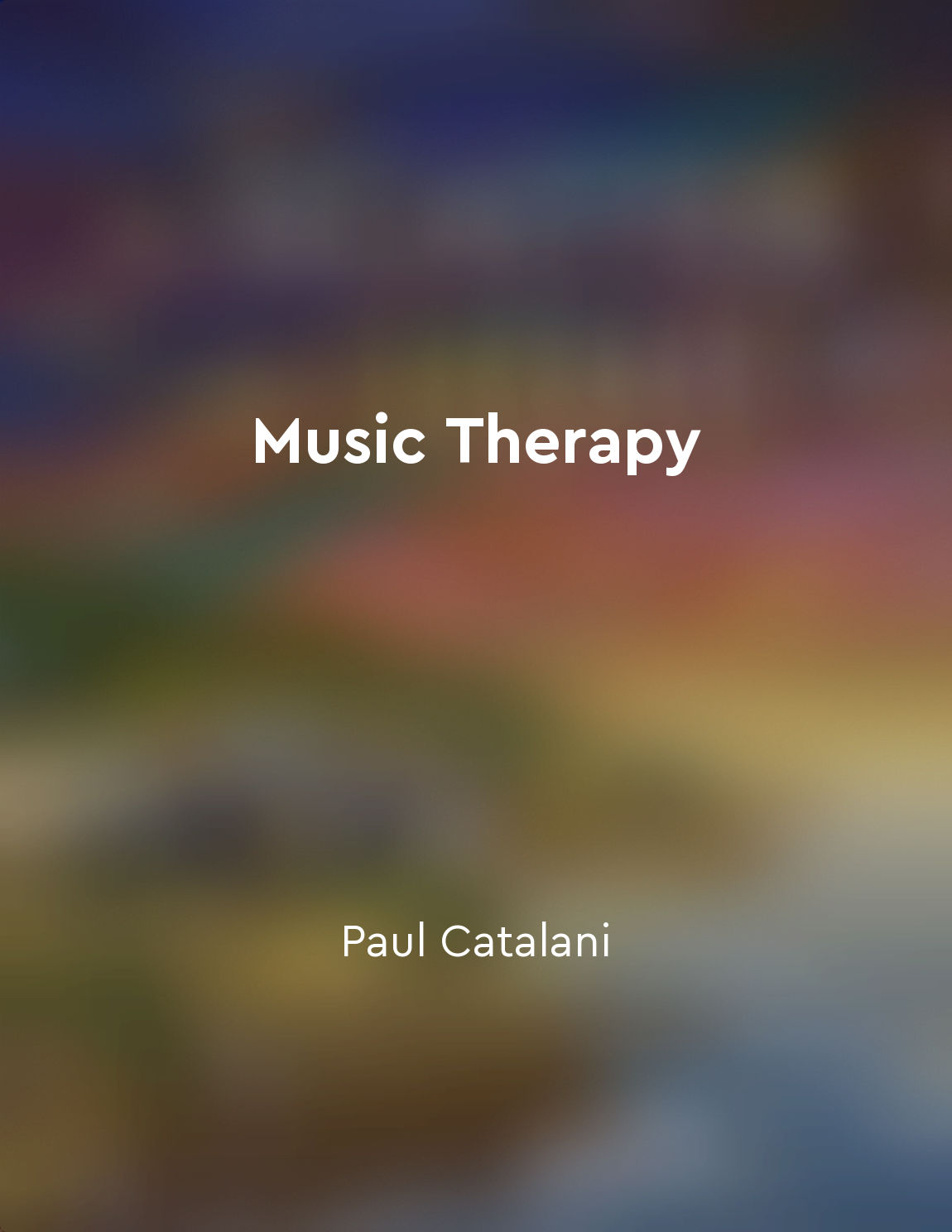Audio available in app
Exploring the connection between music and memory from "summary" of Music Therapy by Paul Catalani
The relationship between music and memory is a fascinating area of study within the field of music therapy. Music has a unique ability to evoke memories and emotions in individuals, often in a way that other stimuli cannot. This connection between music and memory can be powerful and therapeutic, especially for individuals experiencing memory loss or cognitive decline. When we hear a song from our past, it can trigger memories and emotions associated with that time in our lives. This phenomenon is due to the way music is processed in the brain, engaging multiple areas involved in memory, emotion, and sensory processing. As a result, music has the potential to access stored memories that may be difficult to retrieve through other means. For individuals with Alzheimer's disease or other forms of dementia, music can be a powerful tool for reconnecting with the past and improving overall well-being. Listening to familiar music can help individuals with dementia access memories and emotions that may otherwise be difficult to reach. This can lead to increased socialization, improved mood, and a sense of connection with others. In addition to its impact on individuals with dementia, music can also benefit individuals with other types of memory impairments. For example, music therapy techniques such as rhythmic cueing and lyric analysis can help individuals with traumatic brain injuries or stroke improve their memory and cognitive functioning. By engaging with music in a therapeutic setting, individuals can strengthen neural connections and improve overall brain health.- The connection between music and memory is a rich and complex area of study within the field of music therapy. By exploring this relationship further, we can continue to uncover the ways in which music can enhance memory, improve cognitive function, and promote overall well-being in individuals of all ages and abilities.


